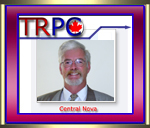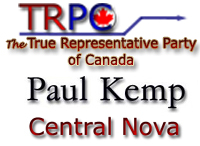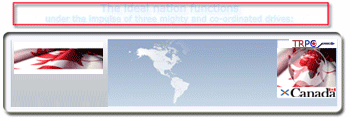A Politics that Works in the 21st Century
This may seem like a truism, yet it is common practice among progressive “political junkies” to place nearly all their attention on electoral campaigns and legislative battles. The assumption seems to be that if only we get more of our people in office the world will magically become a better place.
My colleagues and I advocate for an alternative approach that is more empowering for citizens. And we believe it is more likely to succeed.
Before telling you about what we recommend, it might be helpful to know where our thinking comes from. The community of experts gathering around Cognitive Policy Works is comprised of psychologists, media experts, analysts of future trends, linguists, educators, and systems theorists. We are the kind of people who look at the deep structures of society to discover how social institutions shape behavior. So, when it comes to politics, we don’t easily get caught up on superficialities.
This is important because our alternative is to look at the underpinnings of social cohesion to explain why people think, feel, and act the ways they do. We suggest that political change occurs when there is a significant shift in a cultural lens. In simple terms, if we change how we do politics we will change what politics is about.
President Obama seems to understand this. He has shifted the tone of political discourse by doing things in a different way, implying new social norms that include:
- Disagreeing without being disagreeable (based on civility and mutual respect)
- Treating members of both parties as patriots (emphasizing collaboration toward common goals)
- Opening up the process to the public with virtual town hall meetings and weekly briefings to the public (promoting an expectation of transparency and openness among the citizenry)
- Following the constitution as a moral guide for good behavior (taking oaths seriously and believing in the importance of laws for social order)
(You can learn more about Obama’s moral code here.)
Many progressives have gotten snagged on a political appointment they don’t like or a program that didn’t make its way into the final draft of a bill that they don’t see this fundamental change. There seems to be a wide-spread blindness to the cultural shift that is taking place in Washington and across society.
This doesn’t surprise me. When George Lakoff and I stumbled upon the idea of cognitive policy - the frames, values, and modes of thought that inform political understandings - we were attempting to communicate the importance of cultural values to policymakers in Congress. These were some very smart people, yet they weren’t able to see the significance of what we were saying. Their blindness led us to distinguish cognitive policy from material policy. The nuts and bolts of what is to be done - material policy - will only work if it makes sense to people and resonates with their core values.
The Key to a New Politics
The missing element, what I call the great political blind spot, is a recognition that the workings of our minds are central to politics. We are not “rational actors” who consciously deliberate the pros and cons of every choice to “maximize our self-interest.” Such a view is based on several flawed ideas: that we have conscious access to our thoughts; that our concepts literally correspond with an external reality (as if there were only one); that reason works best when divorced from emotion; and that everyone reasons in the same way. This understanding of the mind is what anthropologists call a folk theory. It is a commonsense notion of how the mind works.
And it is wrong in every respect.
The real workings of our minds tell a different tale. Much of what we call “thought” is structured outside conscious awareness. Our most important concepts are profoundly metaphorical in nature and are shaped by our bodily experiences in the world. Reason cannot possibly work without emotional sensibilities that shape what we pay attention to and how we respond to different things around us. And the logic of our reasoning is bound to particular contexts that can be contradictory from one person to another.
Why should you care about this? Because it demonstrates why so much of our politics throughout the last several decades has been dysfunctional. It just doesn’t work. And the reason is simple: We have assumed that political behavior works in a way that is completely off base.
A Vision for the 21st Century
Millions of citizens are turned off by the political process. This observation alone should be a mandate for a new kind of politics. Many reasons have been given for why so many Americans disengage from politics. People are apathetic. They only care about themselves and their immediate concerns. Negative political adds polarize staunch partisans and marginalize everyone else. There may be kernels of truth in each of these claims. But I contend that there is something deeper going on.
A good place to start unpacking this riddle is with our understanding of language. Recent work has shown that our thoughts are structured outside conscious awareness with cognitive “frames.” A common misconception is that these frames are about words and messages. Many people still think frame analysis is intended for sloganeering. The truth is that frames go much deeper, to the very foundations of how we understand things in the world.
When George Lakoff published Don’t Think of an Elephant! in 2004, there was a wave of excitement that ended with disappointment. What happened? Nonprofit leaders and political strategists “tried” the framing approach by tinkering with their word choices. This was like moving deck chairs around without realizing that there’s a massive block of ice below the surface. They had frames of their own about how language works, understandings that allowed no place for the profound depth of what George was saying. So they failed to realize that frames go to the core of what it means to be human.
And this is the key to politics in the 21st Century - realizing with clarity and depth how the political mind works. In a world based on this new perspective, things work very differently:
- Citizens recognize fear-inducing news reports intended to inflate manufactured risks and hide awareness of genuine threats, thereby reducing the effectiveness of these manipulative tactics.
- Journalists understand the consequences of how facts are presented and beliefs are promoted in the structure of news reporting, resulting in coverage that enhances—rather than erodes—the democratic process.
- Policy-makers abandon contrived and faulty presumptions about “economic rational actors” and instead craft solutions to societal challenges that improve the lives of real people through deeper insights into the human condition, culminating in robust policies that stand the test of time.
- Advocates articulate clear and compelling calls to action that resonate deeply with the values of the citizenry, thereby promoting greater civic engagement and community empowerment.
My colleagues and I are starting to lay the foundation for this new politics. At the heart of our work is a belief in the democratization of knowledge. Insights about the political mind are dangerous in the hands of the few. The best behavioral research money can buy has already been used to manipulate us in the past. The antidote is to make this knowledge available to everyone. We can develop tools for countering deception and make them part of the standard curriculum.
Our goal is both ambitious and simple – to bridge the gap between academia’s extensive knowledge about the human mind and the practices of our civic and political institutions. We seek to alleviate the immediate crises of frustration and recurring setbacks for progressive organizations, while also looking beyond the horizon to a world where citizens are empowered to know who they can trust and how they can participate in the betterment of society. A key element of this is revealing the various applications of psychology to politics.
This will require us to change the way we do things. Old school “think tanks” that spit out reports for public consumption are not good enough. That model is based on the flawed assumption that people only need to get the right facts and they’ll reason to the right conclusions. Our minds simply don’t work that way. Instead, we’ll have to create new tools, establish new practices, and envision new institutional forms.
Notions of wealth that underpin progressive philanthropy will also need to change. We can no longer apply corporate models of worker exploitation to our funding strategies and believe that we’ll succeed. Our institutions must reflect our core values - including human dignity and mutual respect - if we are to promote social well-being in the causes we address and instill our values in the broader culture. One cannot succeed without the other in the long run.
This process will only work if people are engaged more broadly than every before. Elite tactics that treat citizens as passive consumers will not get us there. We need to get personal, in two ways:
- Recognize that politics is fundamentally about personal concerns and perceived realities
- Understand that the culture of politics takes root in the interpersonal space of people engaged with one another
So it really comes down to relationships. How we relate to ourselves and the concerns that motivate us. And how we relate to those around us in common struggle. This is where social networking sites become foundations for successful campaigns (Obama’s campaign website is a great example.). It is also where leaders become facilitators for the creation of flourishing communities, drawing upon the wisdom of crowds to tap the tremendous capacity of citizens to participate in the creation of collective solutions.
It’s about the roles we fill and the relationships among us.
Creating new relationships in politics will require us to learn more about ourselves. We cannot solve big problems like the climate crisis by having our leaders do the work for us. Novel innovations will be necessary to cultivate the new ways of thinking and organizing behind our solutions. We’re going to have to trust each other. We’re also going to have to communicate across cultural boundaries (especially across the boundaries of different political communities) to find a common vision and set about the work of making it real. This will be easier to do if we understand the ways that different worldviews lead to divergent meanings.
Politics in the 21st Century will only work if it takes into account the political mind. The time is ripe for this change. Yesterday’s world is falling apart. We can’t go back. Tomorrow’s world will be shaped by the visionaries of today. It’s going to take all of us working together.
I’m ready to do my part. Are you?








